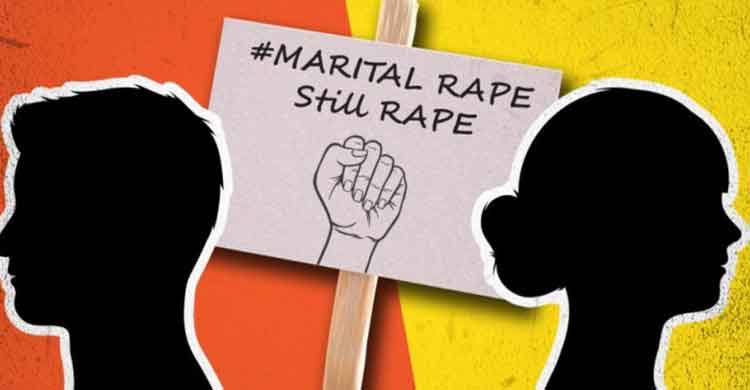High Court Calls for Explanation on Discriminatory Laws on Marital Rape

Today 3 November 2020, the High Court issued a Rule Nisi calling upon the Government to show cause as to why laws that allow for marital rape of women and girls aged above thirteen should not be declared to be void, being discriminatory, and in violation of the fundamental rights of married women and girls to equality (Article 27), non-discrimination (Article 28), protection of law (Article 31), protection of right to life and personal liberty (Article 32) and why the respondents should not be directed to take necessary action to repeal these provisions.
A Division Bench of the High Court Division of the Supreme Court of Bangladesh, comprising Justice Md. Mozibur Rahman Miah and Justice Mohi Uddin Shamim, issued the Rule.
The petitioners are four organisations working on rights and justice, and providing support to victims and survivors of gender-based violence: BLAST (the Bangladesh Legal Aid and Services Trust), BRAC, Naripokkho and the ManusherJonno Foundation.
The Rule was issued in a writ petition filed by four organizations BLAST, BRAC, ManusherJonno Foundation and Naripokkho (WP No. 7758 of 2020) on 1 November 2020. The respondents include the Ministry of Law Justice and Parliamentary Affairs, the Ministry of Women and Children Affairs, and the Ministry of Home Affairs.
All the petitioner organisations provide support and services to victims and survivors of gender-based violence including rape. They challenged the marital rape exception clause in section 375 of the Penal Code 1860 as depriving married women and girls (aged above thirteen) from the right to seek justice for rape by their husbands,and also related provisions, Section 376 of the Code and the explanation to Section 9(1) of the Nari o Shishu Nirjaton Domon Ain 2000 (Suppression of Violence against Women and Children Act) to the extent that these sanction the exception.
Senior Advocate ZI Khan and Barrister Sara Hossain with Barrister Jenefa Jabbar and Barrister Sharmin Akhter appeared for the petitioners. Deputy Attorney General, Advocate Nawroz Md. Rasel Chowdhury appeared for the respondents.
Shireen P. Huq, member Naripokkho stated, “Very pleased that the Court has recognised the Exception Clause to Section 375 as fundamentally discriminatory, and has responded to the pain that countless women and young girls suffer as a result of forced sexual intercourse by their husbands. Criminalisation of marital rape will not necessarily result in those countless women thronging courtrooms with complaints against their husbands. However, it will reaffirm for women their right to say ‘no’ to their husbands, and signal husbands their obligation to respect that ‘no’.”
Shaheen Anam, Executive Director, ManusherJonno Foundation, stated “we are very pleased and hopeful that the necessary changes will be implemented soon.”
Barrister Jenefa Jabbar, Director of BRAC Human Rights and Legal Aid Services (HRLS) programme mentioned that this is another milestone towards achieving equality for women in private life.
Taqbir Huda, Research Specialist, BLAST said “We cannot let Nurnahar’s tragic death go in vain. No woman or girl should have to face marital rape and be told it is perfectly legal. Marital rape must be fully criminalised.”
Background: On 25th October 2020, a 14 year old girl from Tangail died reportedly due to excessive genital bleeding on admission to Dhaka Medical College Hospital (DMCH), just over one month after being married on 20 September 2020 to a man aged 34/35 recently returned from the UAE. According to reports, she had been bleeding from the first night of her marriage.
The Rape Law Reform Coalition (of 17 organisations) retitereated their 10-point demand for Rape Law Reform Now and challenged the continuing prevalence of laws sanctioning marital rape, in light of the death of this child bride and considering the National Survey on Violence Against Women (2015) conducted by the Bangladesh Bureau of Statistics (BBS), which found that 27.3 percent of ever-married women experienced sexual violence perpetrated by their husbands during their lifetime, including forced sexual intercourse.

